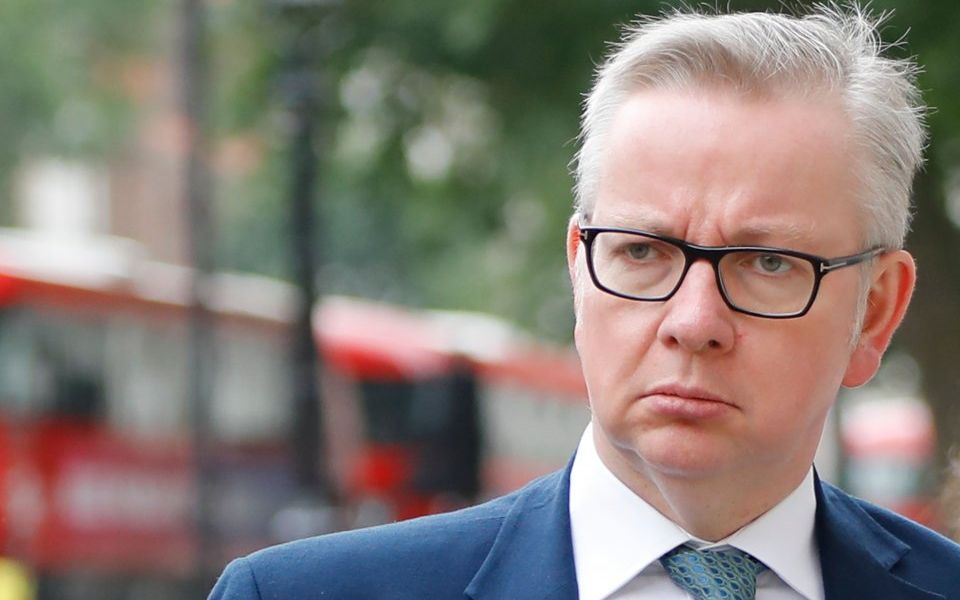Ignore Michael Gove – there’ll be no chance to edit Chequers once the ink is dry

Theresa May’s ambush of her own cabinet in July by presenting the fait accompli of the proposed Chequers deal, which the EU remains unconvinced about and which will be the subject of discussion among EU leaders in Salzburg tomorrow, was for me the low point of the Brexit negotiations.
That was until last Sunday, when Michael Gove, the one-time trusted friend of Boris Johnson and now environment secretary, chose to spin one of those political yarns that debase the Conservative coinage so much as to make it worth less than a Venezuelan bolivar.
In a message aimed at the many Tory backbenchers who have said that they want to “chuck Chequers”, Gove explained that it should be seen as only temporary, that it would get us over the line and out of the EU, and that a Prime Minister could change it with the support of parliament at a future date.
Read more: To win the Brexit prize, ditch Chequers and go back to the drawing board
There is no way to put this subtly, other than to say that it was the height of deceit and folly.
It is the height of folly, for you do not signal to those you are negotiating with that, as soon as the ink is dry and the wax stamped on any agreement, you will begin to start unpicking the clauses and paragraphs you don’t like.
Such an approach only inflates the demands of your opposites, who will now be looking to tie up the agreement in greater legal protections against the duplicity of perfidious Albion.
They will also be looking to raise their demands to counter any future challenges, building in some items that they could agree to compromise on in subsequent amendments. Such an approach is utterly self-defeating and dishonest to those across the table
And it is the height of deceit, because even were Tory backbenchers to fall for Gove’s flight of fancy and believe it possible to amend the Chequers agreement, the reality is somewhat different.
Any agreement we sign with EU will be approved by parliament, and to amend it shall also require parliament’s consent.
That means that it will need to be debated, discussed, and agreed by a political party – no easy thing on such a divisive issue.
It then needs to be put in a party manifesto, and that party has to convince the public and win an election – again no easy thing when Brexit has so divided the nation. It might even require another referendum, heaven forbid.
Most importantly, any agreement we sign with the EU will not just be a piece of legislation for us, but will be a treaty laid down and recorded as such in international treaty law – and will require the agreement of the other party to amend.
That is how treaties work, and it’s why so many remain in force today even though they may have been agreed to in historical times.
It was in 1713 during the Wars of the Spanish Succession that Gibraltar was ceded in perpetuity to Great Britain, and has remained so ever since. And the 1814 Treaty of Paris gave control of Tobago, Seychelles, St Lucia, Mauritius and Malta to the UK – which were only relinquished by our granting of independence.
And therefore Gove’s offer to fellow Conservative MPs and the public about changing what will become a treaty was both utterly disingenuous, and downright manipulative.
Chequers is so unpopular with the public and MPs that it is unlikely to get through the Commons. A poll of 22,000 voters in the 44 top Tory marginals by Global Britain found that every one of those seats could be lost. A poll by Survation found similar levels of opposition.
Thus Gove needed to sell Chequers as something that can be changed later, but this is a fake claim and any reporting of it as a genuine possibility becomes fake news.
Chequers is being advertised as necessary to overcome the impasse surrounding how the Irish border will operate if the UK leaves the Single Market and customs union.
Yet this week the EU flagged a concession on using technical solutions to border problems – thus nullifying the sole justification for Chequers.
The government has to stop trying to fool everyone and recognise that Chequers is unacceptable. What is required is a free trade agreement based on the Canada-style model offered by the EU back in March.
Let us have no more talk of negotiating further changes after we have sealed the deal.
Read more: Migration report should spark fresh policy debate